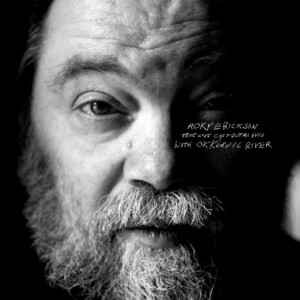Roky & Okkervil
Psycholegenden Roky Erickson gör comeback. Och som han gör det. Ihop med Austinpolarna Okkervil River släpper han nu plattan True Love Cast Out All Evil. Singeln Goodbye Sweet Dreams låter rörande bra. Skivan har en egen sajt: Roky & Okkervil




april 13th, 2010 at 22:33
Rörande bra, ja! Jag blir helt salig när jag lyssnar på nya plattan.
april 14th, 2010 at 09:22
Ett mästerverk. Ett perfekt äktenskap. Rokys förta platta på 15 år…här är recension från Pitchfork för den som orkar läsa:
”Roky Erickson has been a lot of things in his lengthy career: howling psych-rocker, LSD advocate, spiritual quester, mental hospital patient, drug-war casualty, junk-mail collector, sci-fi aficionado, self-proclaimed alien, cult icon. Before he was any of that, though, he was a Texan. Sources vary on where he was born– some say Dallas, others Austin– but he has spent virtually all his life in the Lone Star State. That’s crucial, not simply because Texas breeds a particularly prickly form of artist– from Lightnin’ Hopkins to Townes Van Zandt to Eagle Pennell– but primarily because its artists tend to fiddle around with form and style, throwing together sounds and genres almost haphazardly. So, as a Texas musician, Erickson is by nature a synthesist, and even his earliest recordings with the 13th Floor Elevators exhibit an intuitive mix of blues, rock, psych, country, soul, and prayer. As his career has progressed, he has settled into that station comfortably, so that he now has more in common with Doug Sahm, ZZ Top, and even the Butthole Surfers (who have all worked with him over the decades) than with any of his 1960s psych-rock peers.
So it makes sense that Erickson would partner up with Okkervil River for his first album in 15 years: Even though they’ve been branded broadly indie and have never been especially identified with their hometown of Austin, the band understands his origins and how they inform and even define his music. Will Sheff culled the dozen songs on True Love Cast Out All Evil from more than 60 that Erickson had written over the last four decades, then fashioned them into a setlist that emphasizes biography and breadth. Okkervil River back him like an especially erudite bar band, which allows them to indulge his every whim and mood and which emphasizes his songwriting range. As a result, the album repositions Erickson’s psych rock as the foundation for a diverse sound that spans the Byrdsian riffs on ”Bring Back the Past”, warped folk of ”Ain’t Blues Too Sad”, and garage-rock bluster of ”John Lawman”.
For his part, Erickson sounds better than he has in decades: His voice retains a lot of its growl and grit, but remarkably, the man who gave ”You’re Gonna Miss Me” it madman edge sounds absolutely convincing baring his soul and pleading for his life on ”Please, Judge”. He comes across as more relaxed, more confident, more lively in his vocals, especially on the dignified country number ”Be and Bring Me Home”. Just as Okkervil River’s smarts give them the range to back him, Erickson’s eccentricities have created a huge sentimental streak. Newcomers who pick up this album might find his lyrics a bit precious– especially when he sings, ”I won’t jump on you/ Though we are all rubber”– but these songs are clearly and inventively anchored in an unassuming, enormously uncynical perspective. Ultimately, his words can’t help but coalesce into a detailed portrait of a man whose trials have made him hold his family, his friends, and his life all the more dearly.
The urge with musicians like Erickson– or like Syd Barrett, Skip Spence, Daniel Johnston, Nick Drake, or anyone with a tragic past– is to hang their reputations on their pained histories rather than on their musical accomplishments. At times Sheff seems to be making too much of Erickson’s biography, especially when he interrupts ”Please, Judge” with a crescendoing cacophony of found sounds taken from old home videos or recorded at the Rusk State Hospital for the Criminally Insane, where Erickson served for drug possession. It’s meant to refer not only to that sad chapter, but also to Erickson’s schizophrenia, which caused him to blast televisions and videos to drown out the voices in his head. Crafting those artifacts into a sonic element is more of an academic idea than a musical one, and as such it feels somewhat exploitive, as if too caught up in the past to see the healthier present. Sheff wants to present Erickson as both a rock legend and a real human being, but Erickson just wants to sing. On this affecting and ultimately triumphant album, Erickson comes out on top.”